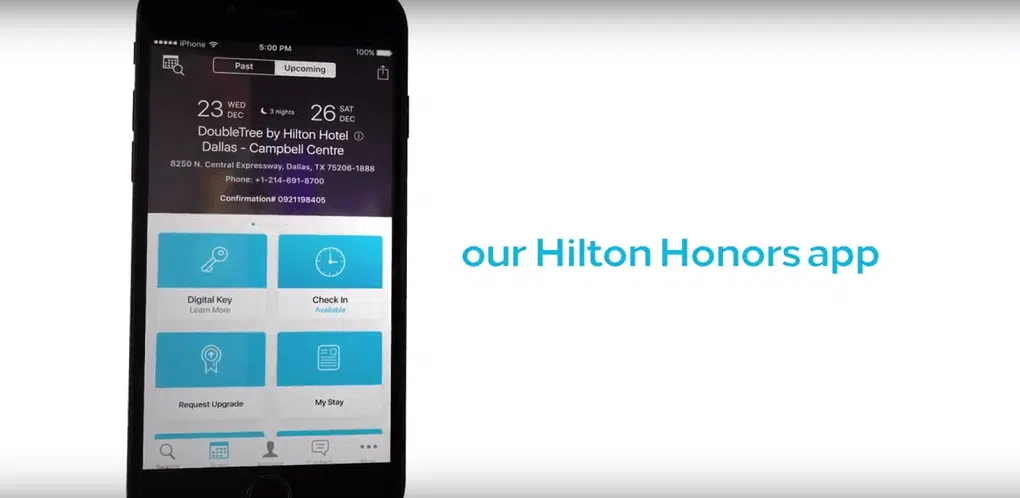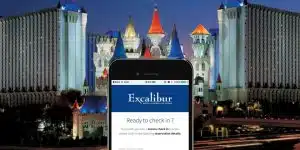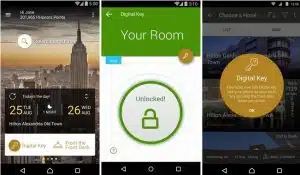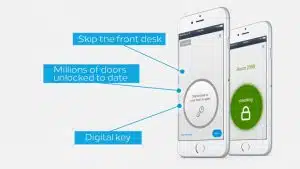Self-service is becoming increasingly valued by a generation of travellers seeking greater convenience and flexibility. At many global airports, self-service check-in and automated passport control kiosks are commonplace. Technology is now helping to reduce queues and speed up transit, removing the need for a once long-winded administrative process.
Yet for some reason, the technology hasn’t been widely rolled out in the hotel industry, despite the fact that demand is there. Research by Hotels.com revealed that 44% of US travellers would be happy using a mobile for hotel self-check-in.
The desire for self-service was found to be even greater in a study of business travellers in North America and Europe. The study found that travellers in the US (78%), Italy (77%), Canada (74%), Spain (73%), the Nordic countries (60%) and Germany (56%) preferred self-service technology to manage their travel.
As the demand for self-service grows, it’s worth looking at the considerable benefits that digital keys offer both guests and hotels.
Benefits to Guests
Using just their smartphone, guests can use a digital key to skip the check-in procedure and gain instant access to their room. Offering this hassle-free alternative is something that can have a direct impact on levels of customer satisfaction.
Since Hilton launched their own Digital Key, Hilton guests using the technology are more likely to rate their “efficiency of arrival” nearly 10 percentage points higher than those using traditional check-in.
A mobile key also allows guests to access other areas of a hotel, such as the car park, elevator, or fitness centre. Additionally, a whole host of service requests can be made from anywhere in the hotel.
For instance, a digital key can be used to ask for housekeeping, issue a ‘do not disturb request’, or reserve a parking space at the hotel before arrival.
Activities and amenities no longer need to be booked through the front desk, either. A smartphone with a digital key can be used to book everything from a massage or spa treatment to a session on the hotel tennis court.
With this kind of technology at their fingertips, the whole guest experience is elevated to another level of freedom and convenience.
Benefits to Hotels
The demands on a front desk are considerable during busy check-in periods. But with more guests checking in themselves, this burden is relieved.
It’s fair to say the check-in process represents an important opportunity for building guest rapport. For that reason, diminishing its role might seem counterproductive. But in reality, the administrative process of form filling and fact checking doesn’t really lend itself to moments of genuine interaction. If we are honest, front desk staff generally spend most of the check-in procedure looking at their computer screen rather than the guests.
However, freed up from the formalities of the check-in procedure, a front desk can spend more quality time on the moments that really matter.
This might involve offering helpful recommendations to guests as they head out for the day. It could mean having the chance to handle customer queries over the phone with greater care and attention, creating more opportunities to influence booking decisions and provide an all-round better service.
Self-service also provides greater upsell opportunities. A hectic front desk might not have the time to tempt a guest with room upgrades or promote in-house amenities and services. In contrast, digital keys can be used as powerful marketing tools to increase sales.
Hotel services and special offers can be promoted via an app, with customised offers targeting specific customer segments. In turn, hotels can track uptake rates to see which deals and amenities guests are really interested in, further helping to refine the amenities and offers they deliver to match personal preferences and buying habits.
From an operational perspective, life becomes easier too. For instance, a hotel can check when a room has been vacated and carry out cleaning to ensure a quicker turnaround time. The hotel restaurant can also be notified about the number of current and future guests to help better plan in advance.
Ultimately, digital keys provide hotels with the ability to improve efficiency, push relevant deals, market more effectively, and provide an all-round better experience to guests.
In conclusion
Self check-in services are now becoming highly valued by a generation that craves flexibility and freedom when they travel. While increasingly expected, this certainly doesn’t mean that hotels should do away with the traditional check-in process. Plenty of travellers still value a formal greeting on arrival.
However, by not offering a self check-in option, it restricts those who do want to bypass the front desk in order to reach their room more quickly. It also limits the wealth of other benefits they can receive beyond a streamlined arrival.
The ultimate goal for any hotel is to leave every guest feeling completely satisfied with the service they’ve received. By complementing the front desk with self-service technology, hotels can strike a balance and ensure the preferences of all are met.







